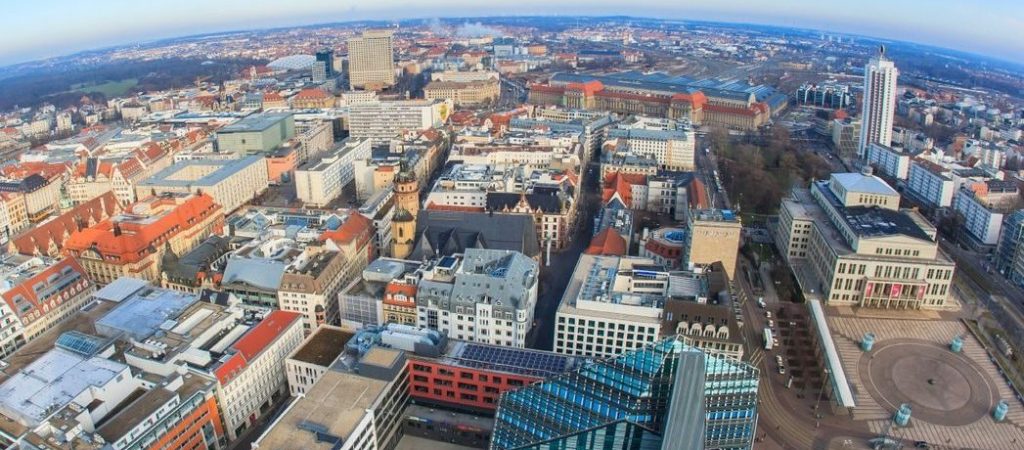Leipzig University

Leipzig University (https://www.uni-leipzig.de/) was founded in 1409, making it one of the oldest in Germany: a comprehensive university with 14 faculties, 440 professorships and 30,000 students. Leipzig University is among the oldest in Europe. Many world-renowned figures taught or studied here. Time and again, Leipzig has also been the source of major scientific developments. As an outward-looking and modern comprehensive university, we strive to be one of the leading institutions of higher education in Germany. A member of the German U15 network, today we are one of the country’s leading universities when it comes to top-class research and medical expertise.
Comprehensive university with 14 faculties, 5,500 employees and over 30,000 students
Leipzig University comprises 14 faculties with over 130 institutes and centres as well as 17 central institutions. The range of subjects at our comprehensive university extends from the humanities and social sciences to the natural sciences, life sciences and medicine.
Around 440 professors and more than 2,800 academic staff conduct research and teach at our university. The University employs a total of around 5,500 people. The proportion of women is just under 52 per cent (university) and 61 per cent (Faculty of Medicine).
Unique variety of subjects
With 150 degree programmes, our university offers a unique variety of subjects. It is the most popular institution of higher education in the Free State of Saxony. More than 30,000 students are currently enrolled, with over 7,000 young people beginning their studies every year. At 59 per cent, the proportion of female students is above average. Approximately twelve per cent of our students are from abroad.
In terms of teaching, our university stands out as a centre in Saxony for subjects involving public services of general interest (law, medicine, teaching, pharmacy). More than a third of current students are enrolled in these subjects.
A strong profile in research and transfer
We have consolidated our competitive position in research: in the DFG 2018 Funding Atlas, we improved our ranking by ten places compared to 2012, climbing to 28th. External funding grew from 53 million euros in 2006 to 118 million euros in 2017.
Leipzig University is concentrating its research in three strategic research fields. Fostering transdisciplinary cooperation, the fields include nine research profile areas which integrate the humanities and social sciences, the life sciences, and the natural sciences in roughly equal proportions. The research fields were chosen in a year-long process, part of which involved two external expert commissions examining proposals from research groups. The aim of establishing this profile is to maximise externally funded and highly competitive collaborative research and to attract excellent scientists.
Our research fields:

Changing Orders in a Globalised World

Sustainable Principles for Live and Health

Intelligent Methods and Materials
Our university’s strength in research is reflected in one DFG Research Centre, three DFG Collaborative Research Centres, two Humboldt Professorships and seven ERC Grants.
With regard to entrepreneurship, Leipzig is also one of the most successful universities in Germany: in a recent survey we ranked among the top five in the category for “Start-ups involving the transfer of university knowledge” (Gründungsradar 2016 of the Stifterverband organisation).
Part of the Leipzig Science Network / Global Hub
Our university’s research fields act as the interface for our intensive cooperation with the 22 other scientific institutions in Leipzig. In addition to Leipzig University, these include three Max Planck Institutes, two Fraunhofer Institutes, four Leibniz Institutes, two Helmholtz Centres, an integrated research and treatment centre financed by the federal government, and an excellent university hospital.
We are a member of the Leipzig Science Network founded in 2018. This network will deepen the cooperation between higher education and non-university research institutions and at the same time enhance Leipzig’s national and international profile as a centre of science.
Campus in the city centre and a vibrant cultural scene
One special aspect of Leipzig University is its centrally located campus in the heart of the city. Traditionally, our university has been closely linked to life in Leipzig as a city of culture, trade, sport and media. The Neues Augusteum and the Paulinum – Assembly Hall and University Church of St. Paul are two new buildings that have helped transform the modern campus into a landmark of today’s city university.
With the centuries-old University Library, the university archives, the art collections and the Institute of German Literature, our university permanently enriches cultural life in Leipzig. Germany’s oldest botanical garden, three museums and the Teaching Collections attract many visitors. Thousands of people every year enjoy listening to the University Orchestra, the University Choir and the Unibigband.
